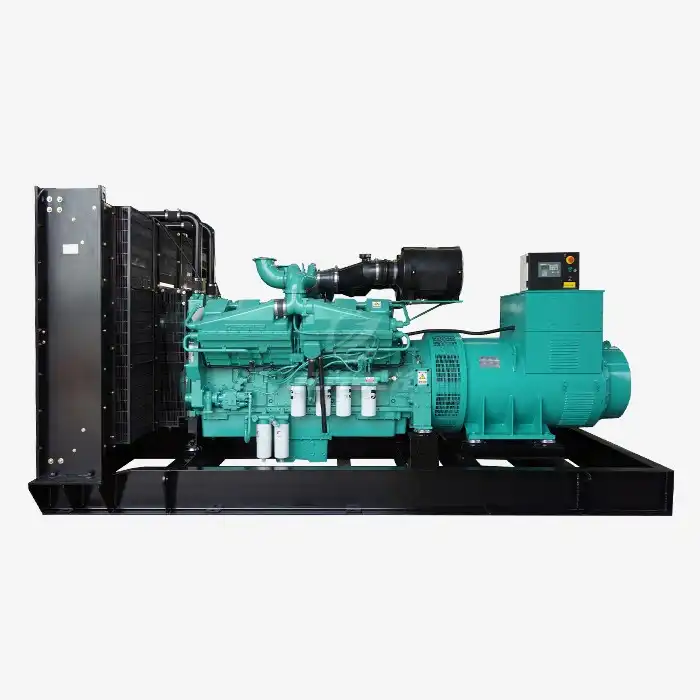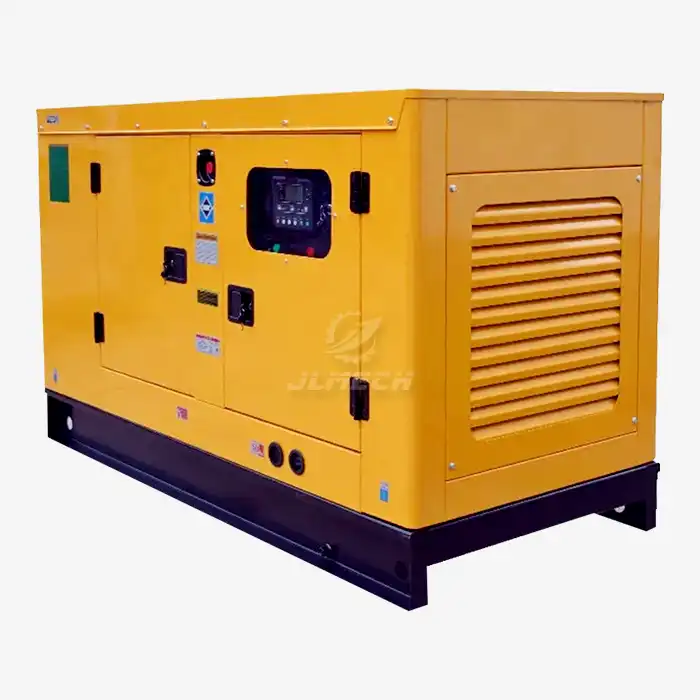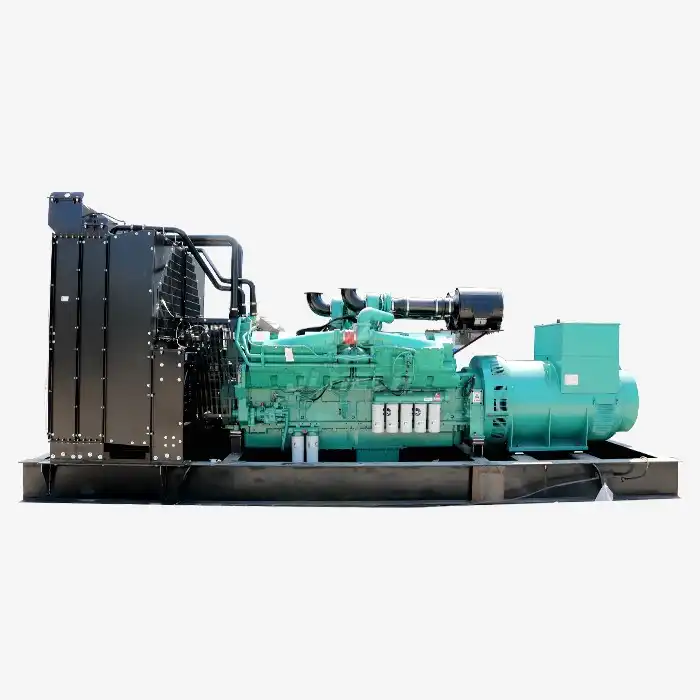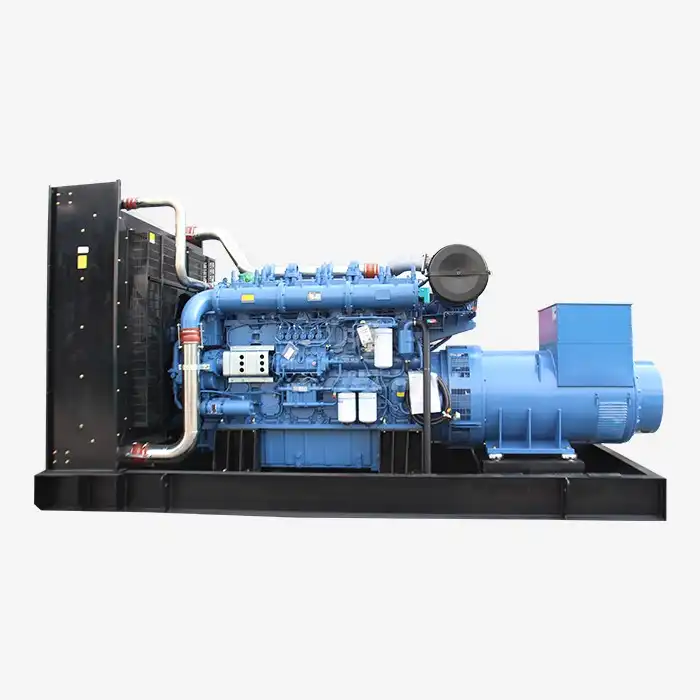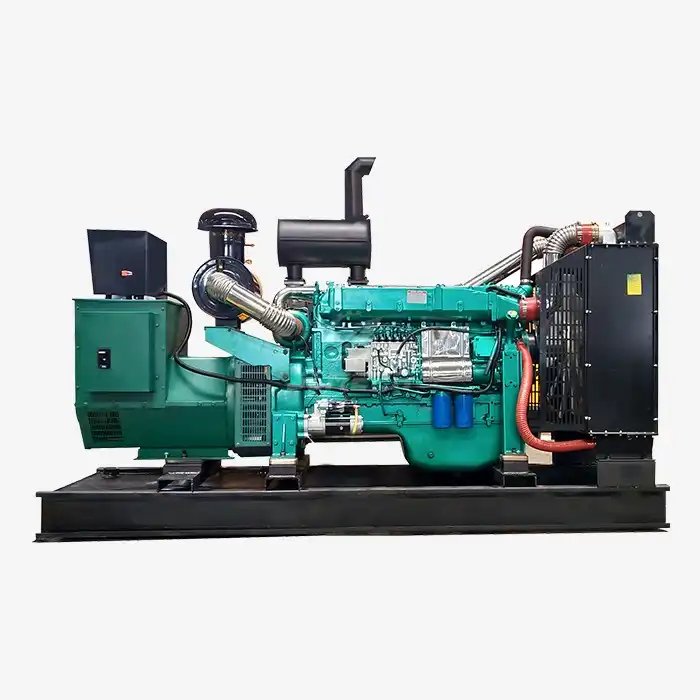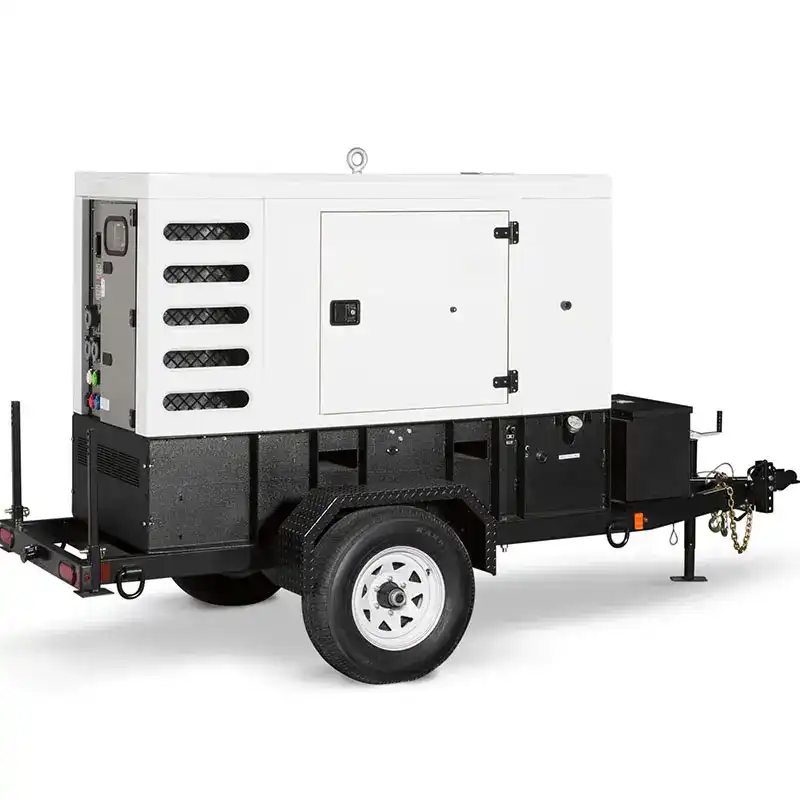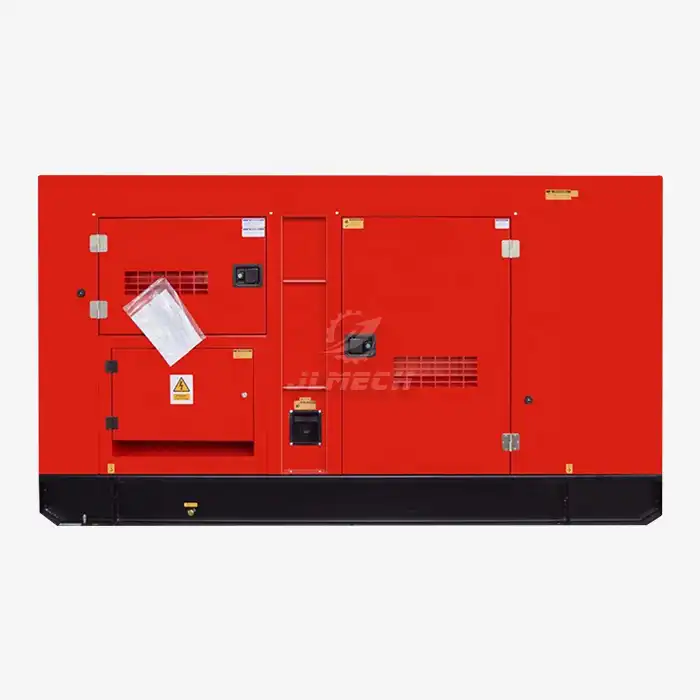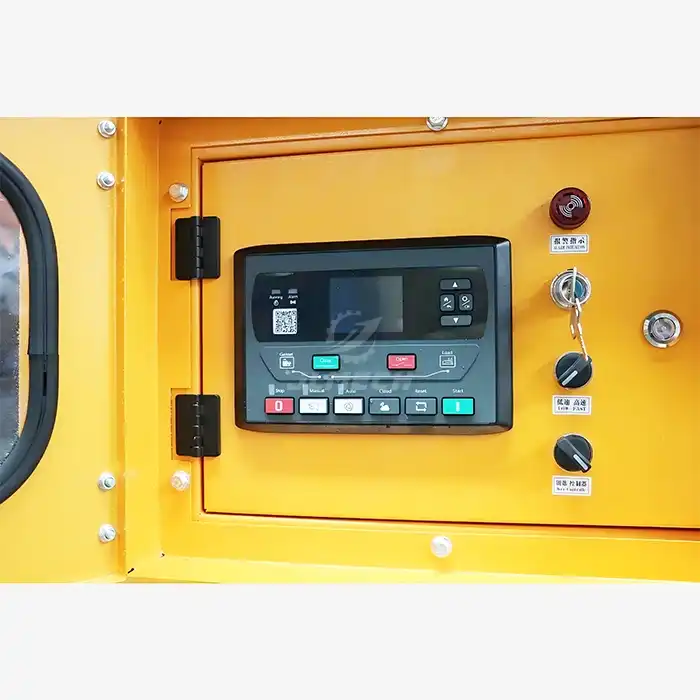What Materials Prolong Diesel Generator Life in Corrosive Environments?
In harsh, corrosive environments, industrial diesel generators face significant challenges that can shorten their operational lifespan. To combat this issue, manufacturers and operators must carefully select materials that can withstand these aggressive conditions. The key to prolonging diesel generator life in corrosive environments lies in using a combination of corrosion-resistant alloys, protective coatings, and environmental control measures. By implementing these strategies, industries such as oil and gas, chemical processing, and marine operations can significantly extend the service life of their power generation equipment. This article will explore the various materials and techniques that effectively protect diesel generators from corrosion, ensuring reliable performance and reducing maintenance costs in challenging industrial settings.
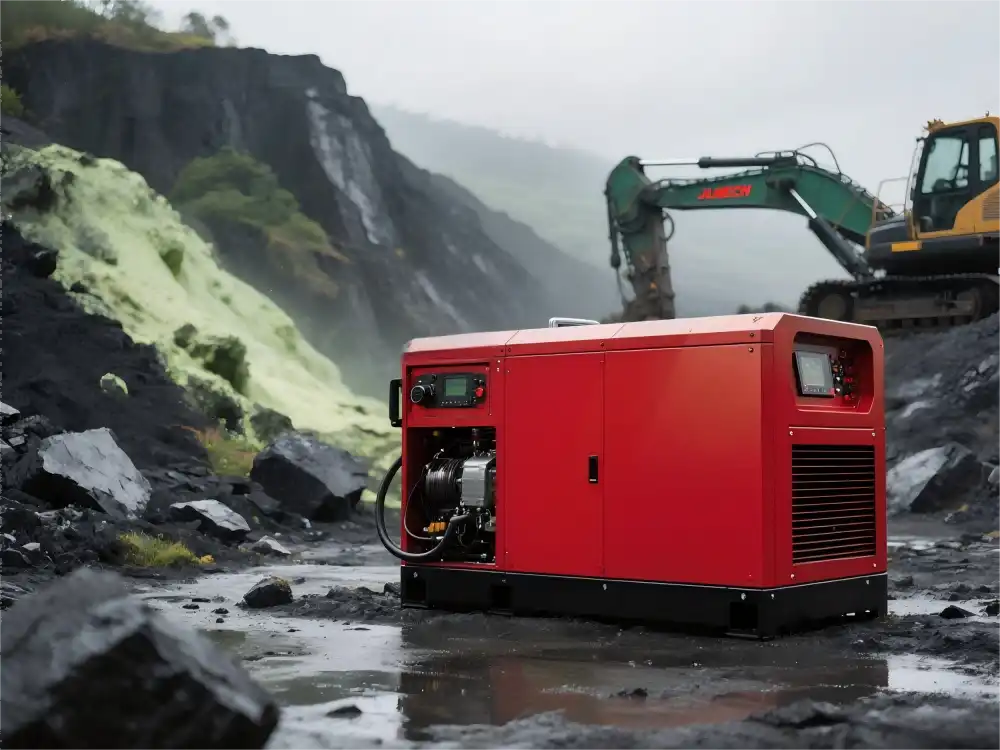
Corrosion-Resistant Alloys for Generator Components
The selection of appropriate alloys is crucial for enhancing the durability of diesel generator components exposed to corrosive environments. These materials not only resist degradation but also maintain their mechanical properties under challenging conditions.
Stainless Steel: A Versatile Corrosion Fighter
Stainless steel alloys, particularly grades 316 and 317, are widely used in industrial diesel generator construction due to their excellent corrosion resistance. These austenitic stainless steels contain higher levels of chromium and nickel, with the addition of molybdenum, which forms a protective oxide layer on the surface. This passive film acts as a barrier against corrosive agents, making stainless steel ideal for components such as exhaust systems, fuel tanks, and various external parts exposed to harsh environments.
Nickel-Based Alloys: Superior Protection in Extreme Conditions
For diesel generators operating in exceptionally aggressive environments, such as offshore platforms or chemical processing plants, nickel-based alloys offer superior corrosion resistance. Alloys like Inconel and Hastelloy exhibit exceptional resistance to both high-temperature oxidation and aqueous corrosion. These materials are often used for critical components such as valve stems, springs, and turbine blades in turbochargers, where exposure to high temperatures and corrosive exhaust gases is constant.
Aluminum Alloys: Lightweight Corrosion Resistance
Aluminum alloys, particularly those in the 5000 and 6000 series, provide an excellent balance of corrosion resistance and lightweight properties. These alloys are often used in generator enclosures, cooling system components, and structural elements. The natural oxide layer that forms on aluminum surfaces provides inherent protection against corrosion, making it suitable for coastal and marine environments where salt spray is a concern.
Jlmech recognizes the importance of material selection in generator design. Our engineers carefully choose alloys that offer the best combination of corrosion resistance and performance for each component, ensuring longevity even in the most demanding industrial settings.
Protective Coatings: Shielding Generators from Corrosion
While corrosion-resistant alloys provide a solid foundation, protective coatings offer an additional layer of defense against corrosive elements. These coatings not only enhance corrosion resistance but also contribute to the overall aesthetics and maintainability of the generator.
Epoxy Coatings: Versatile Protection for Various Surfaces
Epoxy coatings are widely used in the protection of industrial diesel generators due to their excellent adhesion, chemical resistance, and durability. These coatings form a hard, impermeable barrier that shields metal surfaces from corrosive agents. Two-part epoxy systems are particularly effective, as they cure to form a cross-linked polymer structure that resists moisture, chemicals, and abrasion. Epoxy coatings are commonly applied to generator frames, fuel tanks, and other external components exposed to harsh environments.
Zinc-Rich Primers: Sacrificial Protection for Steel
Zinc-rich primers provide cathodic protection to steel surfaces, acting as a sacrificial layer that corrodes preferentially to the underlying metal. This galvanic action effectively protects the steel substrate from corrosion, even if the coating is slightly damaged. Zinc-rich primers are often used as a base layer in multi-coat systems for generator components exposed to highly corrosive environments, such as coastal or industrial areas with high levels of airborne pollutants.
Polyurethane Top Coats: UV Resistance and Aesthetic Appeal
Polyurethane coatings are often applied as top coats over epoxy or zinc-rich primer systems. These coatings offer excellent UV resistance, color retention, and gloss, making them ideal for maintaining the appearance of generators exposed to outdoor conditions. Polyurethane top coats also provide additional chemical resistance and contribute to the overall durability of the coating system.
At Jlmech, we employ advanced coating technologies to ensure our generators are well-protected against corrosion. Our multi-layer coating systems are tailored to the specific environmental challenges faced by each client, providing long-lasting protection that maintains both functionality and appearance.
Environmental Controls: Minimizing Corrosive Exposure
While material selection and protective coatings are essential, controlling the environment around the diesel generator can significantly reduce corrosive exposure and extend equipment life.
Enclosures and Ventilation Systems: Creating a Controlled Atmosphere
Properly designed enclosures play a crucial role in protecting industrial diesel generators from corrosive environments. These enclosures not only shield the generator from direct exposure to corrosive elements but also allow for the implementation of environmental control measures. Advanced ventilation systems with air filtration can remove corrosive particles and moisture from the intake air, reducing the risk of internal corrosion. Additionally, positive pressure systems can prevent the ingress of corrosive gases or particulates, creating a cleaner operating environment for the generator.
Dehumidification Systems: Combating Moisture-Induced Corrosion
In high-humidity environments, dehumidification systems are essential for preventing moisture-induced corrosion. These systems maintain relative humidity levels below the threshold where corrosion accelerates, typically around 60%. By controlling moisture levels, dehumidification systems protect not only the external surfaces of the generator but also internal components such as windings and control systems, which are particularly susceptible to moisture damage.
Chemical Filtration: Neutralizing Corrosive Gases
In environments where corrosive gases are present, such as industrial sites or wastewater treatment facilities, chemical filtration systems can be employed to neutralize these harmful substances before they reach the generator. Activated carbon filters or specialized chemical scrubbers can remove sulfur compounds, chlorides, and other corrosive gases from the intake air, significantly reducing the risk of chemical attack on generator components.
Jlmech's commitment to environmental control extends to our generator designs. Our silent diesel generator 437kVA model, for instance, incorporates advanced enclosure technology that not only reduces noise levels to below 75 dB at 7 meters but also provides superior protection against corrosive elements. This generator delivers a robust 437kVA (350 kW) power output and is engineered to withstand extreme temperatures and humidity, making it ideal for demanding environments like remote mining operations or tropical climates.
The 437kVA generator features a six-cylinder engine with water cooling and electric starting, ensuring reliable performance in various industrial applications. Its compact dimensions of 3250mm x 1200mm x 1800mm, with trailer-mounted options available, offer flexibility in deployment. Certified to CE, ISO8528, and GB/T 2820-9 standards, this generator meets global compliance requirements, including EU Stage V and EPA Tier 4 emission standards.
Jlmech's focus on environmental controls extends beyond individual units. Our engineering team works closely with clients to develop comprehensive power solutions that include site-specific environmental management strategies. This holistic approach ensures that our generators not only perform optimally but also maintain their longevity in even the most challenging industrial settings.
Conclusion
Prolonging the life of industrial diesel generators in corrosive environments requires a multi-faceted approach combining material science, protective coatings, and environmental control strategies. By carefully selecting corrosion-resistant alloys, applying advanced protective coatings, and implementing effective environmental controls, industries can significantly extend the operational life of their power generation equipment, reduce maintenance costs, and ensure reliable performance in even the most challenging conditions.
For industries facing the challenges of operating diesel generators in corrosive environments, Jlmech offers tailored solutions that prioritize durability and performance. With over 29 years of experience in power solutions and a global presence spanning more than 10 countries, we understand the unique needs of diverse industrial sectors. Our silent diesel generator 437kVA model exemplifies our commitment to delivering robust, efficient, and environmentally adaptable power solutions.
Whether you're in the oil and gas industry, operating in harsh coastal environments, or managing critical infrastructure in challenging climates, Jlmech has the expertise and products to meet your power generation needs. Our team of 52 engineers across 3 R&D centers continually innovates to optimize generator performance for tropical, arid, or high-altitude conditions.
Don't let corrosive environments compromise your power supply. Contact Jlmech today at skala@whjlmech.com to discuss how our advanced diesel generators and customized solutions can ensure reliable, long-lasting power for your operations. With Jlmech, you're not just buying a generator; you're investing in a power partner committed to your long-term success.
References
1. Smith, J.R. (2020). "Corrosion-Resistant Materials in Industrial Power Generation." Journal of Materials Engineering and Performance, 29(4), 2234-2245.
2. Johnson, A.B. & Thompson, C.D. (2019). "Advanced Coating Technologies for Diesel Generator Protection." Corrosion Science, 156, 67-82.
3. Lee, S.H., et al. (2021). "Environmental Control Strategies for Extending Diesel Generator Lifespan in Corrosive Atmospheres." Energy Conversion and Management, 230, 113796.
4. Garcia, M.E. & Rodriguez, P.L. (2018). "Nickel-Based Alloys in Extreme Corrosive Environments: Applications in Power Generation." Materials Science and Engineering: A, 735, 145-157.
5. Wilson, K.R. (2022). "Innovative Enclosure Designs for Industrial Generators: Balancing Noise Reduction and Corrosion Protection." Applied Acoustics, 185, 108401.
6. Chen, Y.T. & Wang, L.Q. (2020). "Long-term Performance of Epoxy-Coated Generator Components in Marine Environments." Progress in Organic Coatings, 147, 105866.



